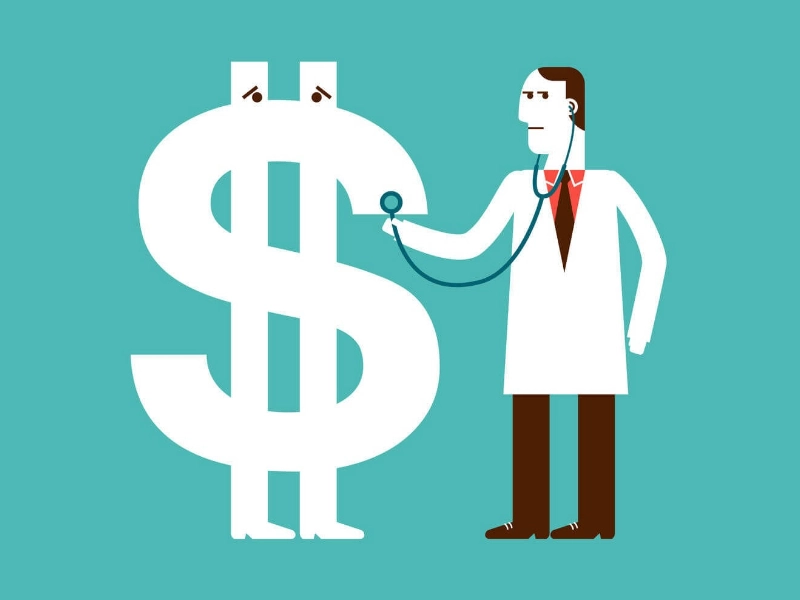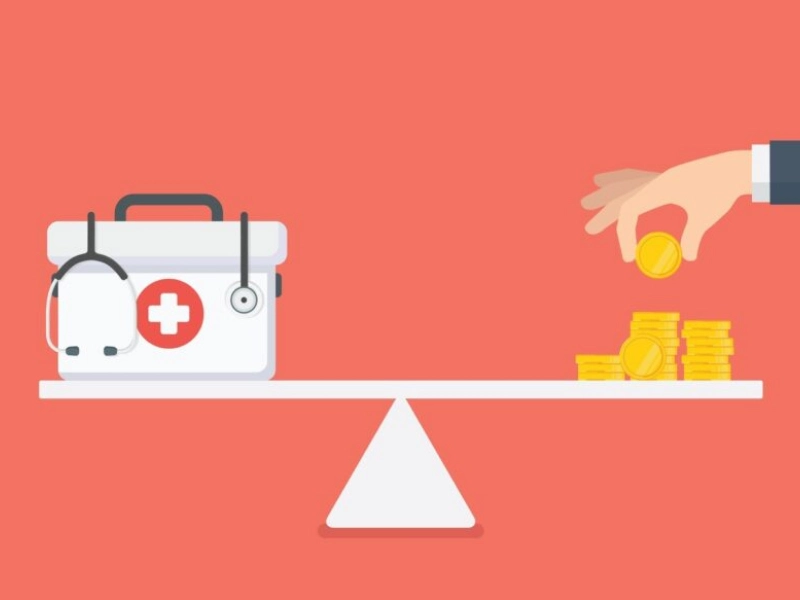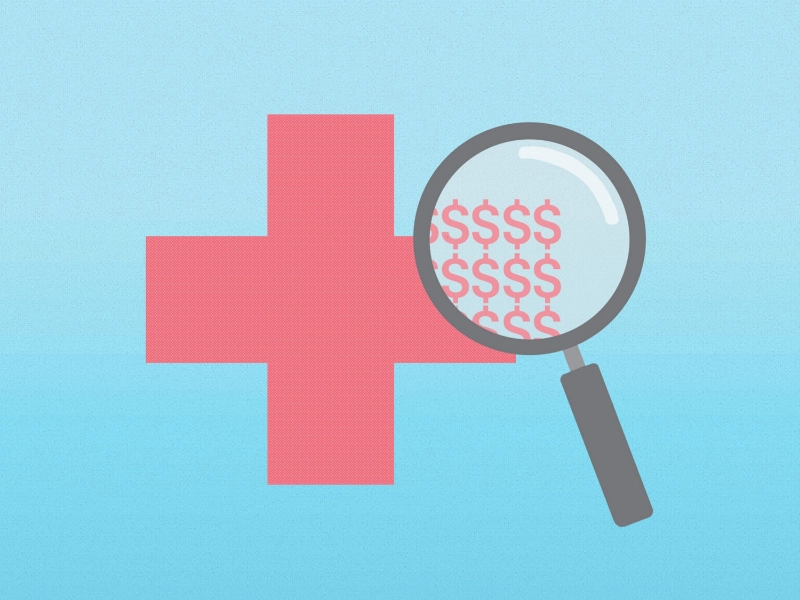Everyone is impacted by the growing cost of healthcare. Employers, families, and individuals must work together to address this situation. The first steps in cutting healthcare expenses are openness and customer involvement. In order to lower the need for pricey treatments, it also entails putting an emphasis on preventive care. Naturally, maintaining prescription medication coverage is also important.
 It is possible to lower one's risk of disease, disability, and mortality by following suggested preventive care guidelines. However, many people do not receive the necessary care. Raising awareness of the need for prevention and facilitating access to services that support people in maintaining their health are essential components of any effort to enhance it.
For instance, a large number of individuals with employer-sponsored insurance (ESI) nevertheless have out-of-pocket expenses that keep them from getting the recommended preventative care. This may deter people from using various preventive services, such as routine vaccinations and cancer screenings.
Certain preventive measures are very valuable economically and provide more health benefits per dollar spent. Reputable review bodies, like the U.S. Preventive Services Task Force, have identified these kinds of services. However, whether or not these forms of preventative care result in net medical savings for the system dominates current policy arguments. However, that can be an incorrect query. Purchasing products, whether they be groceries or battleships, is not done to conserve money but rather to acquire valuables like a longer life or better health.
It is possible to lower one's risk of disease, disability, and mortality by following suggested preventive care guidelines. However, many people do not receive the necessary care. Raising awareness of the need for prevention and facilitating access to services that support people in maintaining their health are essential components of any effort to enhance it.
For instance, a large number of individuals with employer-sponsored insurance (ESI) nevertheless have out-of-pocket expenses that keep them from getting the recommended preventative care. This may deter people from using various preventive services, such as routine vaccinations and cancer screenings.
Certain preventive measures are very valuable economically and provide more health benefits per dollar spent. Reputable review bodies, like the U.S. Preventive Services Task Force, have identified these kinds of services. However, whether or not these forms of preventative care result in net medical savings for the system dominates current policy arguments. However, that can be an incorrect query. Purchasing products, whether they be groceries or battleships, is not done to conserve money but rather to acquire valuables like a longer life or better health.
 Making the correct health plan choice is crucial to maintaining your health. Select a plan that provides coverage for the majority of your medical needs. Getting services and prescriptions from in-network doctors can also help you save money. For care and medications received outside of your plan network, you might have to pay more, or perhaps the entire amount.
You are investing in your future when you take care of your health. By lowering the risk of chronic illnesses, good lifestyle choices, including quitting smoking, maintaining a healthy weight, and exercising regularly, can save healthcare expenses.
Numerous organizations promote these healthy lifestyle practices through their wellness initiatives. Research indicates that these initiatives can lower healthcare expenditures by substantially lowering the likelihood of staff diseases. Furthermore, for non-emergency issues, telehealth and teladoc sessions offer a more cost-effective option than in-person doctor visits. Check with your provider to see if your insurance covers these online medical consultations.
Making the correct health plan choice is crucial to maintaining your health. Select a plan that provides coverage for the majority of your medical needs. Getting services and prescriptions from in-network doctors can also help you save money. For care and medications received outside of your plan network, you might have to pay more, or perhaps the entire amount.
You are investing in your future when you take care of your health. By lowering the risk of chronic illnesses, good lifestyle choices, including quitting smoking, maintaining a healthy weight, and exercising regularly, can save healthcare expenses.
Numerous organizations promote these healthy lifestyle practices through their wellness initiatives. Research indicates that these initiatives can lower healthcare expenditures by substantially lowering the likelihood of staff diseases. Furthermore, for non-emergency issues, telehealth and teladoc sessions offer a more cost-effective option than in-person doctor visits. Check with your provider to see if your insurance covers these online medical consultations.
 By managing chronic health conditions and helping you maintain your health, a doctor can help you save money on medical expenses. Finding a doctor you can build a long-term connection with and who you trust is vital.
You can start your search for a primary care physician by getting recommendations from medical professionals, friends, and family regarding which providers they would recommend. Check for credible internet reviews as well.
After you've assembled a list of possible physicians, list the attributes that are most essential to you. For instance, you might want to select a physician who practices in the evenings or who is connected to a local hospital or medical facility. You may have a preference for a doctor who treats patients holistically or with a kind demeanor.
Lastly, be sure the physician you select takes your health insurance. Keep in mind that you will be responsible for paying for your care out of pocket if you select a doctor who is not covered by your plan.
By managing chronic health conditions and helping you maintain your health, a doctor can help you save money on medical expenses. Finding a doctor you can build a long-term connection with and who you trust is vital.
You can start your search for a primary care physician by getting recommendations from medical professionals, friends, and family regarding which providers they would recommend. Check for credible internet reviews as well.
After you've assembled a list of possible physicians, list the attributes that are most essential to you. For instance, you might want to select a physician who practices in the evenings or who is connected to a local hospital or medical facility. You may have a preference for a doctor who treats patients holistically or with a kind demeanor.
Lastly, be sure the physician you select takes your health insurance. Keep in mind that you will be responsible for paying for your care out of pocket if you select a doctor who is not covered by your plan.
 For the majority of patients, a pharmacy's proximity, range of services, and selection of appropriate goods are all important factors. However, how do people select a pharmacy? It's a question that has been discussed and asked for years.
The response appears to vary depending on the person. While some patients prioritize accuracy and speed of prescription delivery, others place a great value on convenience. A pharmacy's willingness to collaborate with the doctor in order to assist patients in managing their prescriptions and avert negative side effects is also crucial.
Finally, in order to enhance productivity, guarantee accuracy, and shorten wait times, a pharmacy should be equipped with the newest technologies. For everyone's benefit, using a pharmacy automation system to enhance dispensing and manage inventory can also increase overall productivity and save costs. To assist pharmacies in achieving the best patient results, RxLive is a platform that combines this human expertise with technology.
For the majority of patients, a pharmacy's proximity, range of services, and selection of appropriate goods are all important factors. However, how do people select a pharmacy? It's a question that has been discussed and asked for years.
The response appears to vary depending on the person. While some patients prioritize accuracy and speed of prescription delivery, others place a great value on convenience. A pharmacy's willingness to collaborate with the doctor in order to assist patients in managing their prescriptions and avert negative side effects is also crucial.
Finally, in order to enhance productivity, guarantee accuracy, and shorten wait times, a pharmacy should be equipped with the newest technologies. For everyone's benefit, using a pharmacy automation system to enhance dispensing and manage inventory can also increase overall productivity and save costs. To assist pharmacies in achieving the best patient results, RxLive is a platform that combines this human expertise with technology.